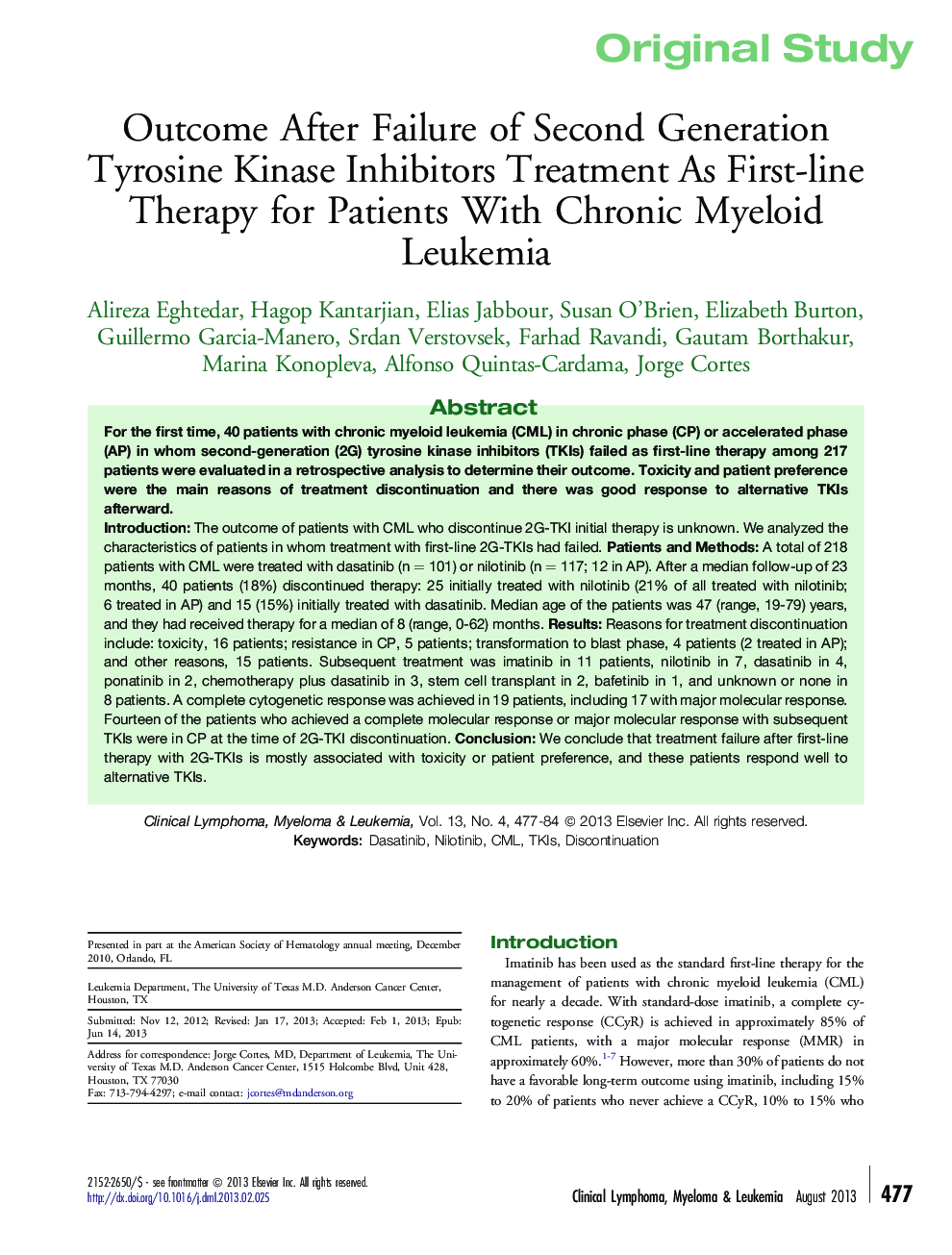| Article ID | Journal | Published Year | Pages | File Type |
|---|---|---|---|---|
| 2754996 | Clinical Lymphoma Myeloma and Leukemia | 2013 | 8 Pages |
IntroductionThe outcome of patients with CML who discontinue 2G-TKI initial therapy is unknown. We analyzed the characteristics of patients in whom treatment with first-line 2G-TKIs had failed.Patients and MethodsA total of 218 patients with CML were treated with dasatinib (n = 101) or nilotinib (n = 117; 12 in AP). After a median follow-up of 23 months, 40 patients (18%) discontinued therapy: 25 initially treated with nilotinib (21% of all treated with nilotinib; 6 treated in AP) and 15 (15%) initially treated with dasatinib. Median age of the patients was 47 (range, 19-79) years, and they had received therapy for a median of 8 (range, 0-62) months.ResultsReasons for treatment discontinuation include: toxicity, 16 patients; resistance in CP, 5 patients; transformation to blast phase, 4 patients (2 treated in AP); and other reasons, 15 patients. Subsequent treatment was imatinib in 11 patients, nilotinib in 7, dasatinib in 4, ponatinib in 2, chemotherapy plus dasatinib in 3, stem cell transplant in 2, bafetinib in 1, and unknown or none in 8 patients. A complete cytogenetic response was achieved in 19 patients, including 17 with major molecular response. Fourteen of the patients who achieved a complete molecular response or major molecular response with subsequent TKIs were in CP at the time of 2G-TKI discontinuation.ConclusionWe conclude that treatment failure after first-line therapy with 2G-TKIs is mostly associated with toxicity or patient preference, and these patients respond well to alternative TKIs.
